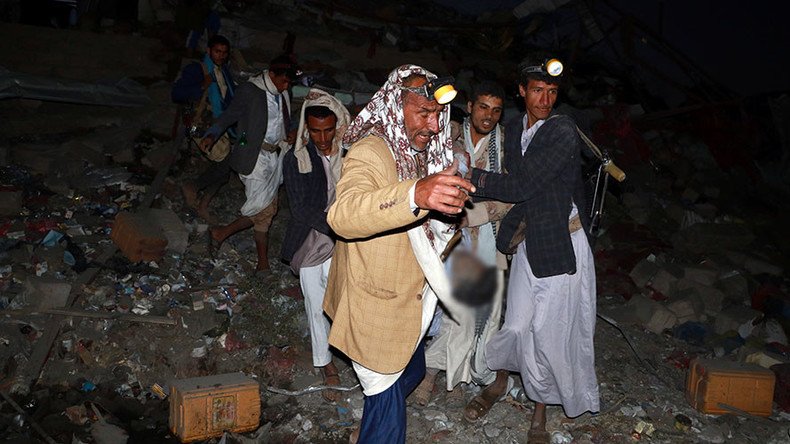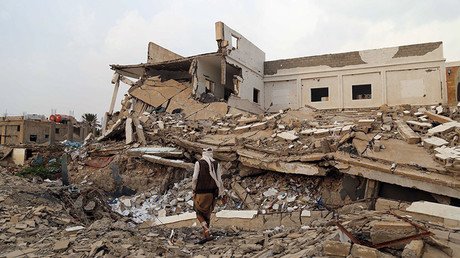'18 out of 27 mln Yemenis in need of humanitarian assistance’ – former UN Human Rights Officer

Eighteen million people in Yemen are in need of humanitarian aid, including 10 million with very acute need, former UN Human Rights Officer Lyal Sunga told RT. He added that military force is often used disproportionately by the Saudi-led coalition.
At least 26 people were killed in an airstrike by the Saudi-led coalition in northern Yemen on Wednesday. The strike hit a hotel, and a market crowded with civilians.
There have been a number of similar airstrikes carried out by the coalition since 2015. In a statement, the coalition said it's now conducting a review. However, since the start of the Saudi intervention, the crisis in Yemen has continued to deteriorate on an almost daily basis.
RT: The Saudi-led coalition says it will investigate this recent airstrike, what do you think their conclusion might be? When any organization investigates itself, can we expect something to happen?
Lyal Sunga: The Geneva Conventions are based on the principle that the fighting parties are supposed to investigate their own combatants for violations of international humanitarian law – for war crimes or other grave breaches of the 1949 Geneva Conventions. Now, it’s inherently a weak system. There is also the International Humanitarian Fact-Finding Commission, which is designed to bring in an independent and objective observer – that is from the international community of the Red Cross. Unfortunately, that has never been used.
Saudi Arabia, or any other party, who are involved, have military courts; they should be able to prosecute and should be able to see justice. That is how it is supposed to work. Unfortunately, over the last several years, we’ve seen a lot of very serious kinds of attacks, very distressing attacks. We’ve seen hospitals, marketplaces, schools bombed. And some time back there was a so-called double-tap attack, where the Saudi bombers came back shortly after their first attack on, I believe it was a marketplace, and when there were first responders – they attacked the first responders.
This is clearly a disproportional use of force. It is not a legitimate military target. And you wonder what’s going on here in Yemen, which is brought to the brink of complete disaster. You’re getting out of 27 million people – 18 million are in need of humanitarian assistance; 10 million are under very acute need. There are more than half a million cases of cholera breaking out. The very distressing thing which has been noted by the UN Secretary General’s representative on Children and Armed Conflict – [is that] children are being killed in large numbers, partly because the Houthis have been recruiting children. Seventy-two percent of children that are in the armed conflict have been recruited by Houthis. So when the Saudi attacks happen or have been perpetrated, children are often bearing the brunt and also in the civilian context. That is why the UN Secretary General’s representative’s report on Children and Armed Conflict noted this kind of conflict particularly, and Saudi Arabia is rather seriously responsible for this attack and carnage.
RT: Why do you think Western countries continue to supply weapons to Saudi Arabia, despite the huge civilian casualties and dire situation in Yemen?
LS: Part of it is a political geostrategic influence – that is one of the main things. One of them is perhaps pure big arms sales. I think Saudi Arabia entered into a hundred billion dollar arms deal with the US. So it is partly influence, it is partly arms sales, and this kind of regular things that we’ve seen in the past. What’s not going to help Yemen is arming the Saudis, the Saudi coalition to the hilt.
Iran also bears some responsibility, but the Iranian involvement backing the Houthis is probably far less than it’s often stated, and it is fairly limited.













